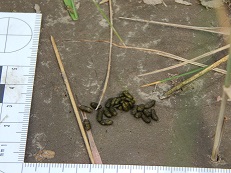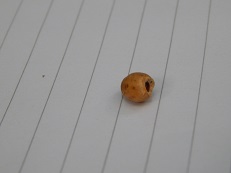For updates from our tracking diary click here
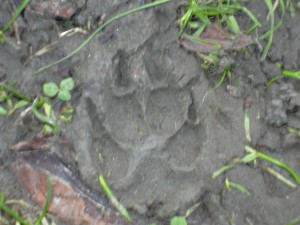 Tracking is a means of identifying an animal from its footprints, droppings and other signs that it has been present, such as marks made when they eat or mark territory.
Tracking is a means of identifying an animal from its footprints, droppings and other signs that it has been present, such as marks made when they eat or mark territory.
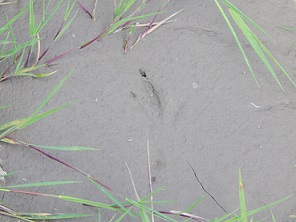 A skilled tracker is able to identify the gender and age of an animal from its footprint and whether the track is of its front or hind feet, left or right.
A skilled tracker is able to identify the gender and age of an animal from its footprint and whether the track is of its front or hind feet, left or right.
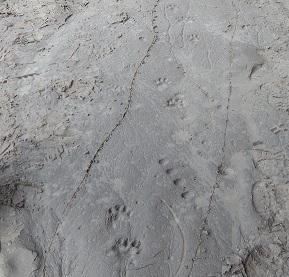 It is also possible for a tracker to detect if the animal was walking or running and at what speed, by the path of footprints left by an animal. The animal’s pace is referred to as its gait.
It is also possible for a tracker to detect if the animal was walking or running and at what speed, by the path of footprints left by an animal. The animal’s pace is referred to as its gait.
![]() Tracking is like detective work, piecing together clues left behind by wildlife. By studying animals tracks and signs you gain a new perspective on its behaviour (including how they eat, sleep and organise themselves), seeing how it moves, where it goes and interpreting why.
Tracking is like detective work, piecing together clues left behind by wildlife. By studying animals tracks and signs you gain a new perspective on its behaviour (including how they eat, sleep and organise themselves), seeing how it moves, where it goes and interpreting why.

